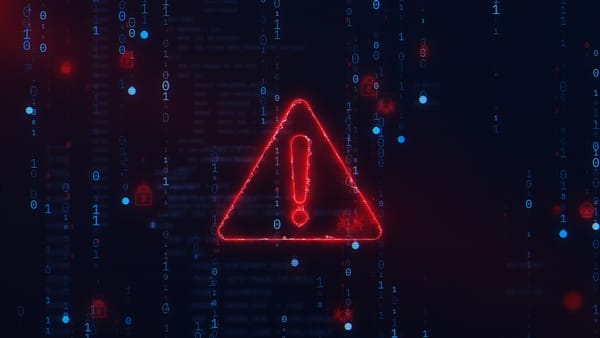Peter Green Chilled "becomes latest victim of High Street cyber-blitz"
Major supermarket supplier has reportedly suffered a ransomware attack following incidents involving M&S, Harrods and the Co-op.

A logistics firm that supplies a wide range of UK supermarkets has allegedly become the latest victim of a ransomware blitz targeting the British High Street.
Peter Green Chilled delivers food to Aldi, Tesco and Sainsbury's. It told the BBC's Wake Up To Money that a cyberattack took place last Wednesday.
It was claimed that this involved a ransom demand - although the frozen and chilled food firm has not confirmed this allegation.
"The transport activities of the business have continued unaffected throughout this incident," managing director Tom Binks told the Beeb.
It is not known whether the incident was the work of Scattered Spider, a shadowy group blamed for the cyberattack which brought British High Street giant M&S to its knees.
Machine has written to Peter Green Chilled to ask if it suffered a ransom attack and whether it had received a demand from a named group. We'll update this article if it responds.
READ MORE: Scattered Spider breaks America: High Street hackers sink fangs into US retailers
If we can speak generally for a moment, rather than about this specific incident.
Any interruption in the supply chain of a company whose products can melt or go off in the heat creates a time pressure that ransomware gangs could use as leverage.
Dr. Darren Williams, CEO and Founder, BlackFog, told Machine: "In most ransomware attacks the ultimate aim is to steal data and lockdown systems. That data can then be used as a bargaining tactic for ransom demands or sold on the dark web.
"For food distributors, system availability and operational uptime are vital, and any disruption has a cascading effect on supply chain schedules.
"Unfortunately, just one single weak link can be a gateway for cybercriminals to enter and navigate through an entire network. And cyber attackers know this sector is particularly vulnerable, so we’d urge distributors to take pre-emptive measures.
"These include having early warning systems to detect and automatically block any suspicious activity to protect their valuable data so that attackers have nothing to use as leverage for ransom demands."
Panic on the High Street
Andy Norton, European Cyber Risk Officer at Armis, said recent attacks demonstrate the unique threat posed to the High Street.
"These incidents highlight the increasingly high stakes in retail - a sector where even brief disruptions can lead to empty shelves, trigger panic buying, and cause wider supply chain issues," he said.
"With sprawling digital supply chains, high volumes of customer data, and the need for always-on operations, retailers have become prime targets. In fact, 41% of retailers have seen an increase in threat activity over the last six months - and these threat actors will not be slowing down anytime soon.
"This reinforces the need for a proactive cybersecurity strategy that provides organisations with a full understanding of their attack surface so that they can effectively defend and manage it. With 79% of global IT decision makers in the retail sector highlighting the introduction of a proactive cybersecurity posture as a top goal for 2025, retailers who take this approach, using AI to their advantage, will be well-positioned to defend against attacks, before they materialise."
Will hackers mall British retailers again?
Unfortunately, we're likely to see more attacks on the British High Street and other targets as the situation gets worse long before it gets better.
Dr. Ilia Kolochenko, CEO at ImmuniWeb and a Fellow at both the British Computer Society (BCS) and European Law Institute (ELI), said: "In 2025, we will likely observe a surge of stealth cyber-attacks against business-critical suppliers and vendors of large companies and organisations. Cybercriminals – oftentimes in bright contrast to relaxed VC-backed cybersecurity firms – are militarily pragmatic, focusing their efforts on the fastest and most cost-efficient ways to compromise the data they need.
"The easiest way to do so is to go after vendors and suppliers that have privileged access to the 'crown jewels' or that simply store the information in question. Unlike their wealthy clients, suppliers frequently do not have sufficient cybersecurity budgets or simply neglect data protection, naively believing that nobody wants to hack them.
"In reality, being a low-hanging fruit, suppliers and vendors have become the number one priority for organised cybercrime. Moreover, suppliers and vendors frequently have very basic or simply non-existent digital forensics and incident response (DFIR) capacities, offering an extra advantage to intruders: the hack will highly likely remain undetected.
"In sum, global companies and organisations should urgently review their business-critical vendors for cybersecurity and data protection issues before it becomes too late."
Do you have a story or insights to share? Get in touch and let us know.




